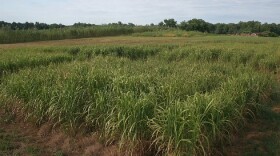The Virginia Environmental Endowment announced, this week, that this year it would give more than a quarter of a million dollars to 14 groups statewide. 2017 marks the 40th anniversary of the VEE; the first organization of its kind in the nation. Sandy Hausman reports on how it got started, and what it has done to protect and improve this state’s natural resources.
In the late 70’s, residents of Hopewell, Virginia got some very bad news. People working in a local chemical plant were getting sick, and doctors were finding high levels of the product they made -- a toxic pesticide called Kepone -- in their blood. Joseph Maroon is executive director of the Virginia Environmental Endowment. He says the chemical also ended up in our water.
“So the governor back then shut the James River immediately to commercial fishing, and it stayed closed for 13 years, and in fact even today there is an advisory warning people about eating fish from the James River because of Kepone.”
A lawsuit followed, and federal judge Robert Merhige fined the company millions in damages. His decree called for some of that money to be invested in a fund to help protect and restore the environment in Virginia.
“So it was the first of its kind in the country, and the first endowment in the nation to be solely working on environmental improvement.”
In fact, Maroon says, the VEE helped start or nurture many of this state’s best known eco-warriors.
“Organizations like the Chesapeake Bay Foundation, the Southern Environmental Law Center, the James River Association, the Elizabeth River Project and so on and so forth.”
The endowment has awarded 64 college scholarships, and funded research on what Kepone does to the human body. Fortunately, Maroon says, it is not the problem it once was.
“The amount of the chemical continues to go down, but 40 years later two-thrids of the fish still have some trace of kepone in them. Kepone will never really go away. It gets buried in the sediment. It’s gone down in concentration, because we’ve shut off the source. In fact, it’s been banned internationally.”
Looking back on its 40 years in business, Maroon adds, the Virginia Environmental Endowment has given out about $29 million to nearly 500 partners in the Commonwealth.



